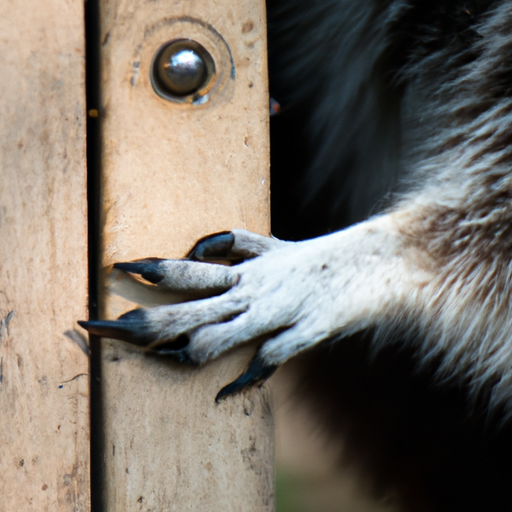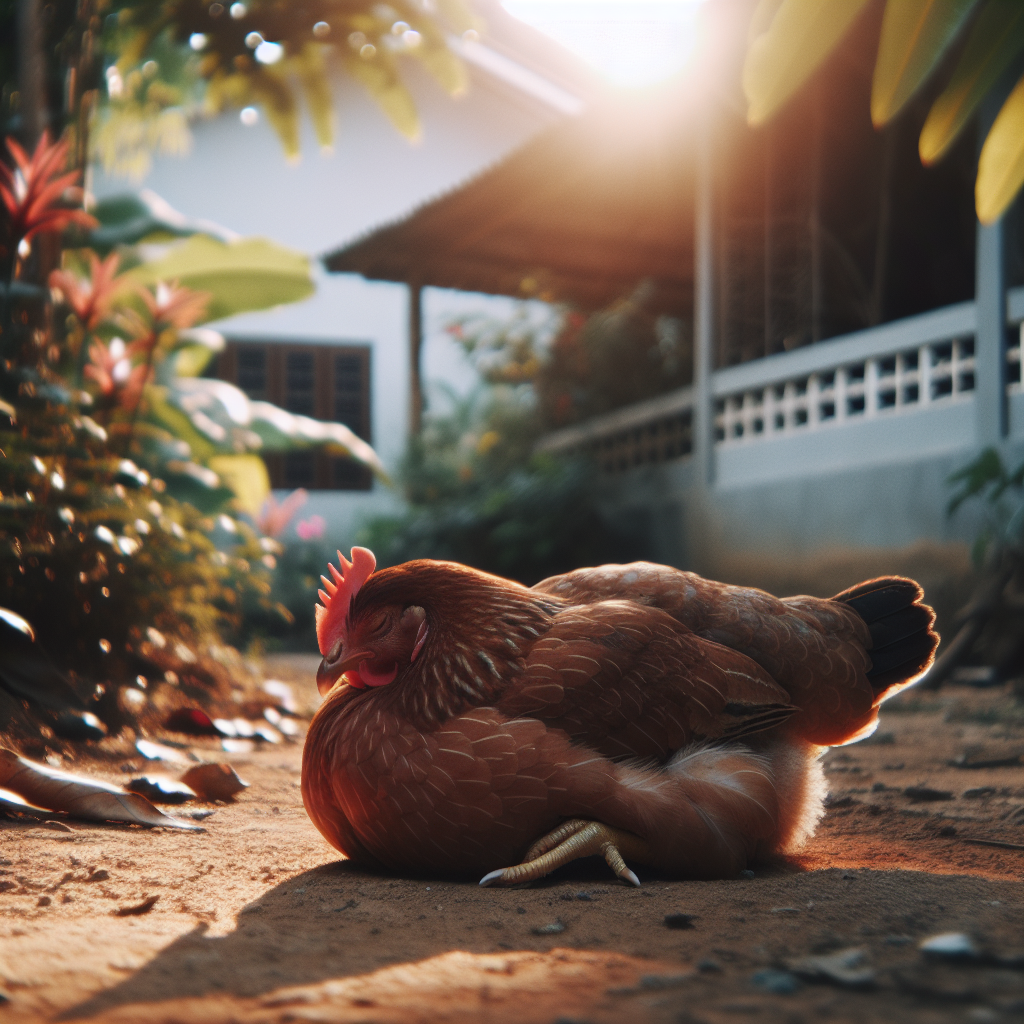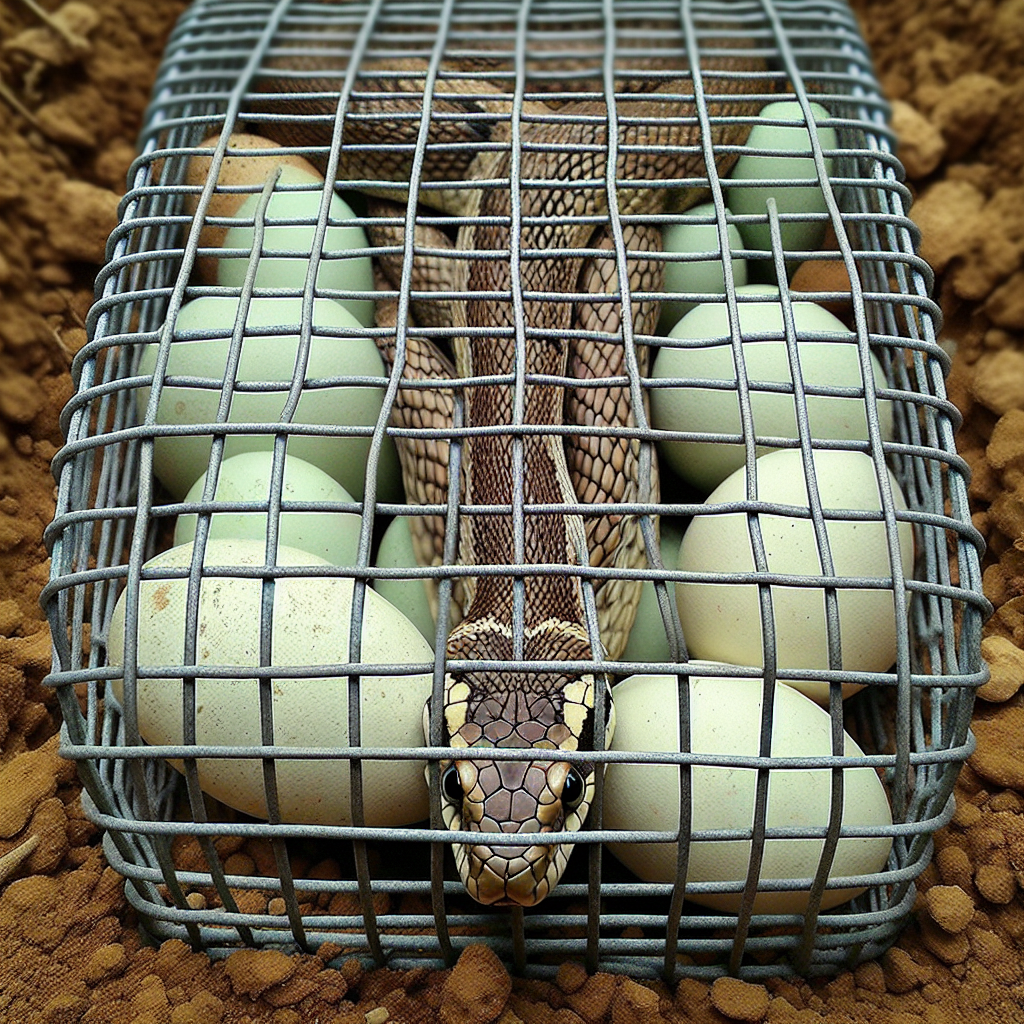If you’re a proud backyard chicken owner, you know that protecting your feathered friends from potential predators is of utmost importance. From cunning foxes to crafty raccoons, there are many creatures out there with an eye on your beloved flock. In this article, we’ll explore some of the most common predators for backyard chickens and provide you with valuable insights on how to keep your chickens safe and secure. So grab a cup of tea, put on your detective hat, and prepare yourself for a fascinating journey into the world of backyard chicken predators.
Introduction to Backyard Chickens
If you’ve ever considered raising backyard chickens, you’re not alone. This increasingly popular trend allows people to enjoy the benefits of fresh eggs, a sustainable lifestyle, and a connection to nature right in their own backyard. However, it’s important to be aware of the risks and challenges that come with raising these feathered friends. One of the biggest concerns for backyard chicken owners is the presence of predators that can pose a threat to their flock. In this article, we will explore the various predators that target backyard chickens, from native wildlife to domestic pets, birds of prey to rodents, and more. By understanding these potential threats, you can take appropriate measures to protect your beloved chickens and ensure their safety.
Benefits of Raising Backyard Chickens
Before diving into the predators, let’s first explore the many benefits of raising backyard chickens. Firstly, having a flock of your own provides a constant supply of fresh eggs. Not only are these eggs nutritious and delicious, but they also eliminate the need to purchase eggs from the grocery store. Additionally, chickens are natural composters, meaning they help reduce food waste by consuming kitchen scraps. They also provide high-quality fertilizer that can be used to nourish your garden. Raising chickens also promotes sustainability, as they require minimal resources and produce minimal waste. Finally, having chickens in your backyard can provide a unique opportunity for children to learn about responsibility, nature, and the circle of life.
Risks and Challenges of Raising Backyard Chickens
While raising backyard chickens comes with numerous benefits, it is not without its risks and challenges. Predators pose a significant threat to the safety and well-being of your chickens. These predators are often attracted to the presence of backyard chickens and will stop at nothing to get their hands on a tasty meal. Furthermore, chickens are vulnerable animals, lacking the natural defenses that other animals possess. It is crucial to take proactive measures to safeguard your flock from these predators to ensure their safety and comfort.
Predators that Target Backyard Chickens
Native Wildlife
Native wildlife can be a significant threat to backyard chickens, especially in areas where human development encroaches upon their natural habitats. Some of the most common native wildlife predators include raccoons, foxes, coyotes, possums, skunks, and weasels.
Raccoons
Raccoons are notorious for their cunning and dexterity, making them skilled chicken predators. They are intelligent and capable of opening latches and doors to access chicken coops. Raccoons are primarily active at night, so securing your chicken coop with sturdy locks and ensuring it is predator-proof is crucial.
Foxes
Foxes are natural born hunters and can quickly decimate a flock of backyard chickens. They have keen senses and are capable of stealthy movements, making them a formidable predator. Foxes are known to dig under fences, so installing an underground barrier can help deter them from attacking your chickens.
Coyotes
Coyotes are highly adaptable creatures that are prevalent in both rural and urban areas. They are skilled hunters and will not hesitate to prey upon backyard chickens. Coyotes are notorious for their ability to jump over or dig under fences, so it is important to reinforce your coop’s perimeter.
Possums
Although possums may appear harmless, they can be a nuisance to backyard chickens. While they generally seek out food rather than actively hunting chickens, they are known to steal eggs and harass the flock. Ensuring secure nesting areas and collecting eggs regularly can help minimize the attraction for possums.
Skunks
Skunks are primarily scavengers but will readily attack chickens given the opportunity. They are known for their noxious spray, which can cause significant discomfort to both humans and animals. Keeping your chicken coop secure and not leaving any food sources readily available can help deter skunks.
Weasels
Weasels are agile and ferocious hunters. With their slender bodies, they can fit through small gaps and access chicken coops easily. Weasels are skilled in killing for sport rather than solely for food, making them a threat to backyard chickens. Ensuring your coop is constructed with appropriate wire mesh and small-sized openings can help prevent weasel attacks.
Domestic Pets
While cats and dogs are often cherished family members, they can also pose a risk to backyard chickens.
Dogs
Unsupervised dogs can be a significant threat to chickens, especially if they have a high prey drive. Even friendly dogs may display predatory behaviors towards chickens. Properly introducing dogs to chickens, training them not to chase or harm the chickens, and providing supervision when they are together is essential for their coexistence.
Cats
Cats are natural hunters and can pose a threat to chickens, particularly if they are allowed to roam freely in the backyard. While some cats show little interest in chickens, others may view them as prey. It is important to monitor your cat’s behavior around chickens and take necessary precautions to ensure their safety.
Birds of Prey
Birds of prey, such as hawks, owls, eagles, and falcons, are skilled hunters with sharp vision and powerful talons.
Hawks
Hawks are excellent aerial hunters and can swoop down from above to catch unsuspecting chickens. They are prevalent in many regions and can pose a significant threat to free-ranging backyard chickens. Providing overhead cover, such as netting or artificial shelters, can help deter hawks from attacking your chickens.
Owls
Owls are primarily nocturnal predators that are well-equipped for silent flight and excellent night vision. They primarily target smaller mammals but may also prey upon chickens. Ensuring your chicken coop is completely sealed at night and your chickens are safely locked away can protect them against owl attacks.
Eagles
Eagles are large birds of prey with impressive wingspans and powerful talons. While encounters with eagles are rare in most areas, they have been known to attack chickens. Erecting scare devices, such as reflective materials or predator decoys, can help deter eagles from approaching your flock.
Falcons
Falcons are swift and agile hunters that primarily target smaller birds. While backyard chickens may not be their preferred prey, they can still pose a threat. Providing an enclosed run or securing your chickens in a predator-proof coop can help protect them from falcon attacks.
Rodents
Rodents are notorious for infiltrating chicken coops in search of food and can pose a significant threat to chickens.
Rats
Rats are skilled climbers and can easily access chicken coops through small openings or weaknesses in the structure. Besides stealing eggs, they can also attack young or sick chickens. Regularly cleaning the coop, removing any potential food sources, and ensuring all holes are sealed tightly will help keep rats at bay.
Mice
Mice are smaller rodents that can squeeze through tiny gaps and infest a chicken coop in no time. While they primarily target chicken feed, they can also harm young or weak chickens. Storing chicken feed in secure containers and regularly inspecting and maintaining the coop will help prevent mice infestations.
Snakes
Snakes are natural predators that can pose a serious risk to backyard chickens.
Rat Snakes
Rat snakes are non-venomous constrictor snakes that can climb trees and enter chicken coops through small openings. They primarily target eggs and chicks but can also pose a threat to adult chickens. Securing your coop with fine mesh wiring and closing any potential entry points will help keep rat snakes out.
Black Snakes
Black snakes, also known as black racers, are fast-moving snakes that prey on small animals, including chickens. They are highly skilled climbers and can access chicken coops through tree branches or other means. It is essential to keep trees trimmed away from the coop and ensure all openings are securely sealed to prevent black snake attacks.
Rattlesnakes
Rattlesnakes are venomous snakes that pose a serious threat to chickens and humans alike. Their venom can be fatal to chickens if they are bitten. Eliminating snake hiding spots, such as tall grass or brush piles, and securing the chicken coop will help minimize the risk of rattlesnake encounters.
Copperheads
Copperheads are venomous snakes commonly found in wooded areas and can pose a risk to backyard chickens. While they typically avoid contact with humans and animals, they may strike if they feel threatened. Regularly clearing away debris and keeping the coop area clean and tidy will help reduce the likelihood of copperhead encounters.
Other Reptiles
While less common, turtles and alligators can also pose a threat to backyard chickens.
Turtles
Turtles are not typically considered predators of chickens; however, they may opportunistically steal eggs if given the chance. Ensuring a secure nesting area and collecting eggs regularly reduces the attraction for turtles.
Alligators
Alligators are highly unlikely to be a concern for backyard chicken owners, except for those living in specific regions where alligators are prevalent. However, in such areas, alligators can pose a significant threat to free-ranging chickens. Constructing a secure chicken run and providing adequate fencing can help keep alligators out of your flock’s reach.
Insects and Arachnids
While not conventional predators, certain insects and arachnids can cause harm to backyard chickens.
Coyote Spiders
Coyote spiders, also known as wolf spiders or ground spiders, are venomous spiders that can inflict painful bites on chickens. Generally, they are not a significant threat, but if the population becomes excessive, it can be a concern. Regularly inspecting and cleaning the coop can help minimize the presence of these spiders.
Black Widows
Black widows are venomous spiders that pose a risk to both humans and animals. While bites are rare, they can be fatal for chickens. Clearing away potential hiding spots, such as woodpiles or debris, can help reduce the risk of black widow encounters.
Wolf Spiders
Wolf spiders are common spiders that are generally harmless to chickens. However, if a chicken were to disturb their egg sacs, there may be a risk of spider aggression. Regularly inspecting the coop and removing any spider egg sacs can help prevent such encounters.
Centipedes
Centipedes are predatory arthropods that can deliver painful bites to chickens. While they generally seek out smaller prey, chickens may inadvertently come into contact with them. Ensuring a clean and well-maintained coop can help minimize centipede populations.
Scorpions
Scorpions are venomous arachnids that can pose a risk to chickens. While they are not usually found in areas where backyard chickens are common, certain regions may harbor scorpion populations. Maintaining a clean and tidy coop area and regularly inspecting for scorpion presence will help protect your flock.
Hunting Animals
In some areas, hunting animals such as coyote hunting dogs may pose a threat to backyard chickens. These dogs are trained to track and capture wildlife, including chickens. Preventing access to your flock by erecting secure fencing and implementing deterrents can help mitigate the risk of these hunting animals.
In conclusion, raising backyard chickens offers numerous benefits, but it also comes with the responsibility of protecting them from predators. By understanding the various predators that target backyard chickens, such as native wildlife, domestic pets, birds of prey, rodents, snakes, reptiles, insects, arachnids, and hunting animals, you can take proactive measures to ensure the safety and well-being of your cherished flock. Remember to implement appropriate security measures, such as predator-proofing your coop, reinforcing fencing, and providing ample shelter, to give your feathered friends the best chance at a happy and secure life in your backyard.




